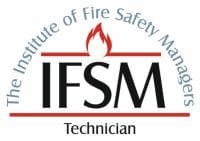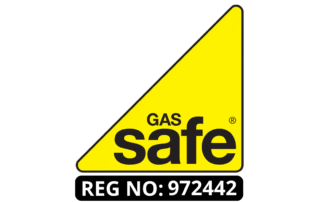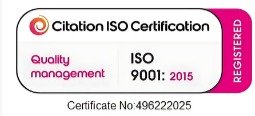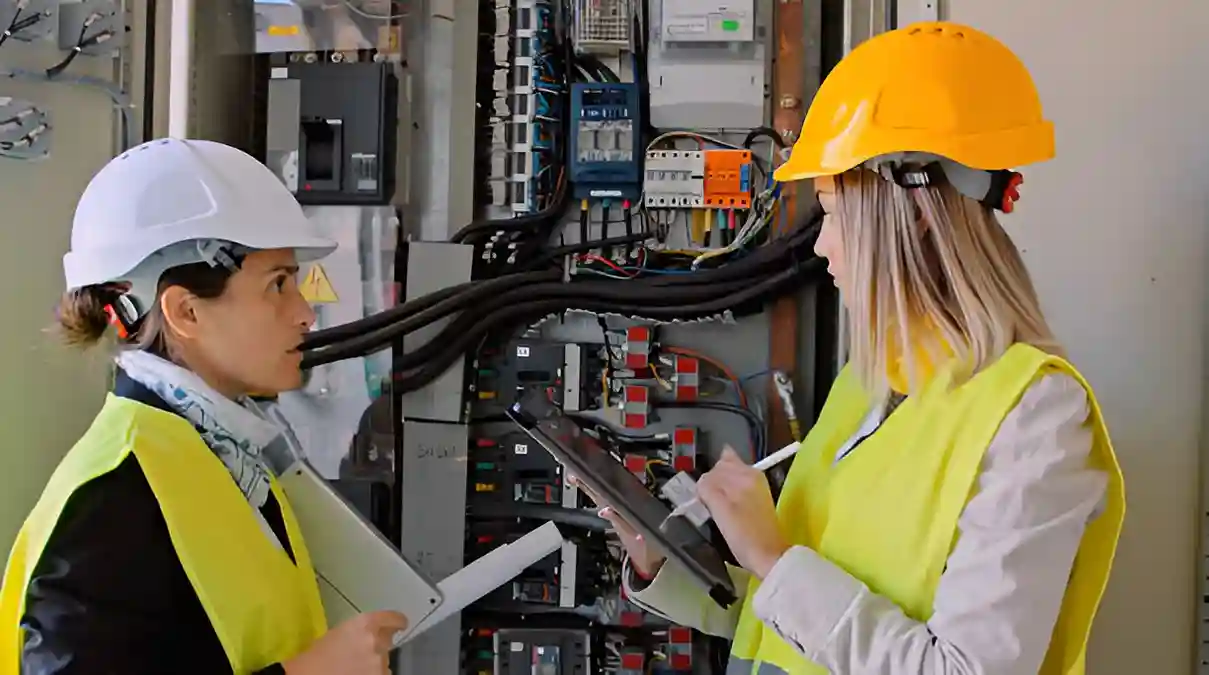
The EICR certificate is essential for property owners in the UK. It provides a comprehensive assessment of electrical safety and compliance in residential and commercial buildings. Understanding its importance can help minimise risks linked to electrical faults. However, many property owners remain unaware of the specific regulations and requirements involved. This guide will clarify these points, providing key insights into the EICR process and its implications for property management.
Main Points
- An EICR certificate evaluates electrical safety, spot danger and confirms compliance with legal standards for property owners in the UK.
- Landlords must arrange EICRs every five years and give tenants copies within 28 days to avoid fines.
- The inspection process involves visual inspections, circuit tests, and consumer unit evaluations to ensure safety and proper operation.
- EICR costs range from £100 to £300, depending on property size, complexity, and location.
- Selecting a qualified assessor guarantees comprehensive inspections and adherence to regulations, safeguarding both property and tenant safety.
What Is an EICR Certificate?
An EICR certificate, or Electrical Installation Condition Report, is a necessary document that evaluates the safety and condition of a property’s electrical systems. This report is produced after a comprehensive inspection carried out by a qualified electrician, who assesses various parts of the electrical system, including wiring, sockets, and lighting.
The main aim of the EICR is to detect any unsafe conditions or deficiencies that could pose risks to people or property. The report categorises findings into different codes, indicating the urgency of necessary repairs or replacements.
An EICR is usually necessary for rental properties to ensure compliance with regulations and protect tenants. Additionally, homeowners can obtain this certificate to maintain safety standards and extend the lifespan of their electrical systems.
Regular inspections and the subsequent issuance of EICR certificates support proactive management of electrical safety, creating a safe environment for all occupants.
Why Is an EICR Certificate Important?
The significance of an EICR certificate cannot be overstated, especially in guaranteeing electrical safety in residential and commercial properties. This document acts as an official record of the safety status of electrical installations, highlighting any potential hazards or faults that may be present.
Regular inspections allow property owners to reduce risks related to electrical faults, such as fires or electric shocks, thus safeguarding occupants and assets.
Moreover, an EICR certificate can increase the property’s value, making it more appealing to potential buyers or tenants who prioritise safety. Besides creating a safer environment, possessing a valid EICR shows a property owner’s dedication to compliance and responsible management.
Regular inspections and timely certification can also save money by addressing issues early, before they become more significant problems. Overall, an EICR certificate is essential for ensuring safety, legal compliance, and financial responsibility in property management.
legal regulations for EICR in the UK
Complying with UK legal requirements for Electrical Installation Condition Reports (EICR) emphasises the need to maintain electrical safety standards.
The Electricity at Work Regulations 1989 require all electrical systems to be maintained appropriately to avoid danger. For private landlords, the 2020 amendments to the Electrical Safety Standards in the Private Rented Sector (England) Regulations specify that EICRs must be carried out at least every five years.
Property owners need to have qualified electricians perform these inspections and generate a report that describes the state of the electrical installations. Landlords must also provide tenants with a copy of the EICR within 28 days of its completion.
Non-compliance may result in significant penalties, including fines and legal proceedings. As a result, understanding and following these regulations is essential for ensuring everyone’s safety and shielding property owners from possible liabilities.
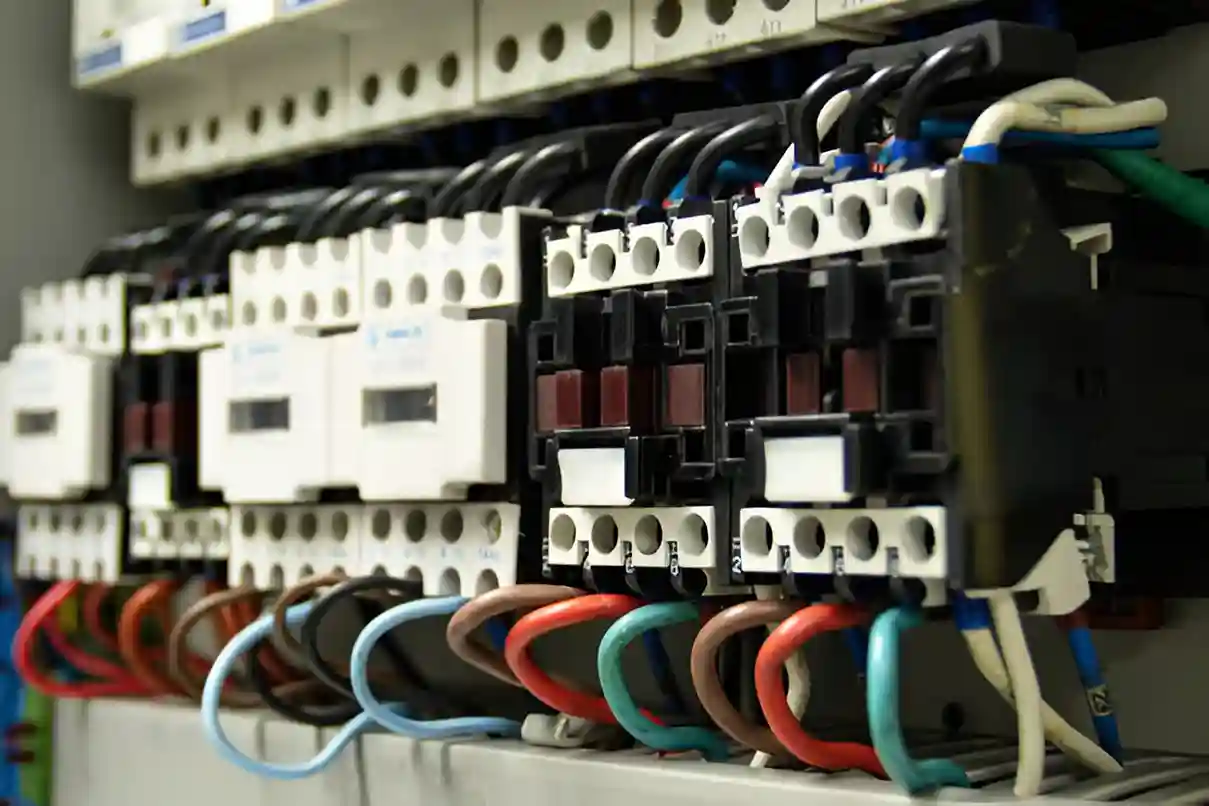
EICR certificate for Landlords
While ensuring electrical safety may seem like a challenging task, obtaining an EICR certificate is an essential responsibility for landlords. This certificate not only verifies the safety of electrical installations but also protects both tenants and properties. Compliance with this requirement promotes peace of mind and develops a secure living environment.
| Aspect | Importance | Consequence |
|---|---|---|
| Tenant Safety | Guarantees that electrical systems are safe and functional | Risk of accidents or injuries |
| Legal Compliance | Meets legal regulations | Heavy fines or legal action |
| Property Value | Maintains property standards | Decreased marketability |
| Peace of Mind | Builds trust with tenants | Higher tenant retention |
Landlords must prioritise obtaining an EICR certificate to fulfil their duty of care, ensuring their properties remain safe and compliant with relevant legislation.
EICR certificate for homeowners
Getting an EICR certificate is essential for homeowners aiming to verify the safety and dependability of their electrical systems. This certificate serves as an official document, confirming that a property’s electrical installations are safe for use and comply with current regulations.
Homeowners should consider obtaining an EICR not only for safety reasons but also to boost the property’s value. Regular inspections help identify potential hazards early, avoid costly repairs, and offer peace of mind.
In the UK, although there is no legal requirement for homeowners to have an EICR, many insurers may ask for one to provide coverage. Having a current EICR can also be beneficial when selling a property, as it gives reassurance to potential buyers regarding the condition of the electrical system.
Homeowners are advised to conduct these inspections every three to five years, or following major renovations, to ensure a safe living environment.
What Does the EICR Inspection Involve?
The EICR inspection entails a thorough examination of a property’s electrical systems to verify safety and adherence to regulations. This process is essential for identifying potential hazards and ensuring the electrical system functions properly.
The inspection typically includes the following key elements:
- Visual Examination: Inspectors perform a thorough visual inspection of all electrical components, including wiring, sockets, and switches, to identify signs of wear, damage, or incorrect installation.
- Testing of Circuits: Electrical circuits are examined to assess their performance and safety. This includes verifying continuity, insulation resistance, and earth fault loop impedance.
- Assessment of Consumer Units: The inspection checks consumer units (fuse boxes) for proper labelling, functional circuit breakers, and signs of overheating or corrosion.
Through these steps, the EICR inspection verifies that the electrical installations stay safe for occupants and comply with the necessary legal standards.
How Much Does an EICR Certificate Cost?
Generally, the cost of an EICR certificate depends on several factors, such as the property’s size, location, and the complexity of the electrical systems being inspected. Property owners can expect to pay between £100 and £300 for a standard assessment.
To provide a clearer perspective, the following table illustrates potential costs associated with different property types:
| Property Type | Estimated Cost | Emotional Impact |
|---|---|---|
| Studio Flat | £100 – £150 | Peace of Mind |
| 2-Bedroom House | £150 – £200 | Safety Assurance |
| 3-Bedroom House | £200 – £250 | Trust in safety measures |
| Larger Properties | £250 – £300 | Long-Term Security |
Landlord Safety Certification provides reliable service at affordable prices.
Factors That Affect the Cost of Your Report
While various factors can influence the cost of an EICR report, the most important elements include the property’s size, location, and the complexity of its electrical systems. Understanding these factors can help property owners better estimate their costs.
- Property Size: Larger properties typically demand more comprehensive inspections, leading to increased time and effort, thereby elevating costs.
- Location: The geographic area can influence pricing. Urban areas may have higher rates due to demand and living expenses, whereas rural locations might be more affordable.
- Electrical Complexity: Properties with complex electrical systems, like multiple circuits or outdated wiring, might require in-depth evaluations, leading to increased fees.
How Often Should You Get an EICR Certificate?
Property owners should prioritise obtaining an EICR certificate at regular intervals to ensure ongoing safety and compliance. In the UK, it is advised that residential properties be inspected every five years. However, this period can vary based on specific circumstances.
For example, properties that are rented out should have an EICR every five years or whenever there is a change of tenancy, as required by law. Additionally, if any significant electrical work has been carried out or if there are concerns about the condition of the electrical system, an immediate assessment is recommended.
Commercial properties typically require more frequent assessments, usually every three years, depending on their use and associated risks. Regular inspections not only ensure compliance with legal requirements but also protect tenants and occupants from potential dangers, thereby enhancing overall safety within the property.
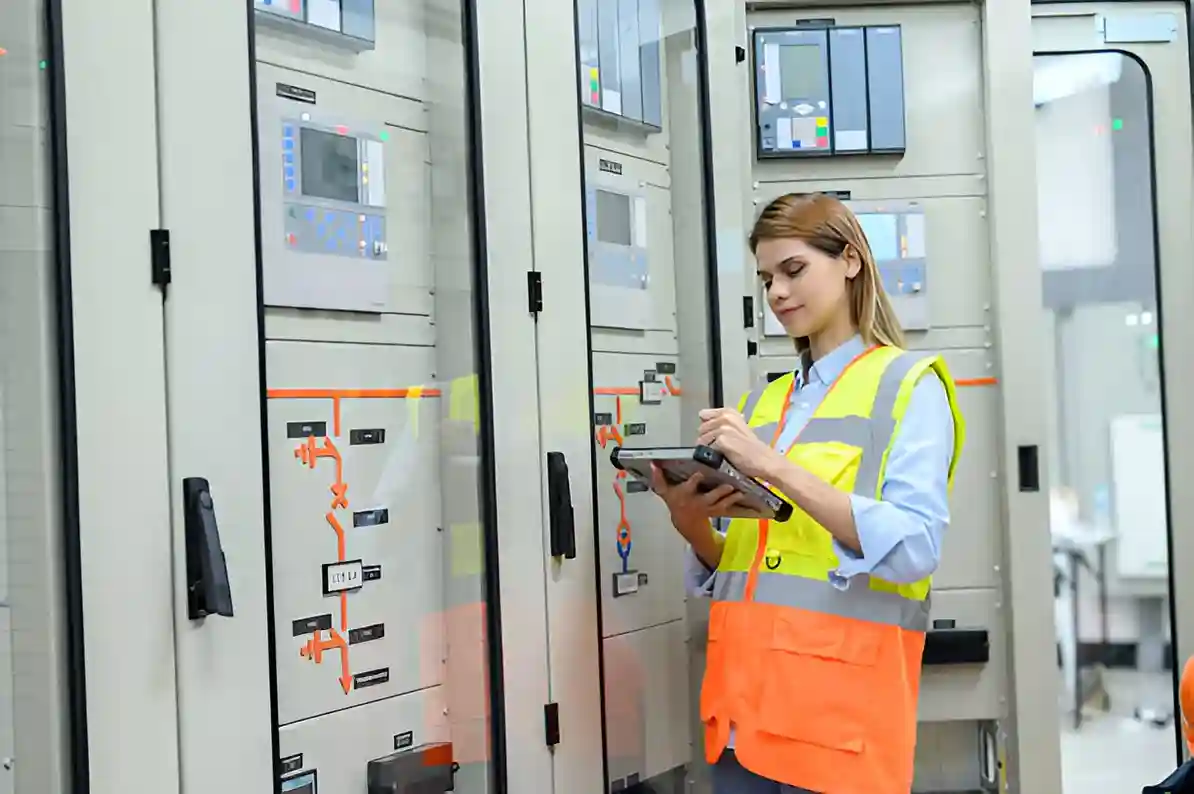
How to Choose a Qualified EICR Assessor
How can someone ensure they choose a qualified EICR assessor? Selecting the right professional is integral for safety and compliance. Property owners need to take into account the following factors:
- Accreditation and Certification: Ensure the assessor has appropriate qualifications, such as those from recognised organisations like the National Inspection Council for Electrical Installation Contracting (NICEIC) or the Electrical Contractors’ Association (ECA).
- Experience and Reputation: Search for assessors who have a proven history of performing EICR inspections. Reading reviews and asking for recommendations can give you a better understanding of their dependability and skill.
- Insurance Coverage: Make sure the assessor holds adequate professional indemnity and public liability insurance. This safeguards property owners against errors or damages that may occur during the inspection.
Frequently asked questions.
Conclusion
To summarise, the EICR certificate is an essential component for ensuring electrical safety and compliance in UK properties. By recognising its importance, legal obligations, and the need for regular checks, property owners can protect their investments and safeguard tenants. Whether for landlords or homeowners, prioritising EICR inspections encourages a proactive approach to electrical safety. Ultimately, selecting a qualified assessor further improves the accuracy of the report, providing peace of mind for everyone involved.
